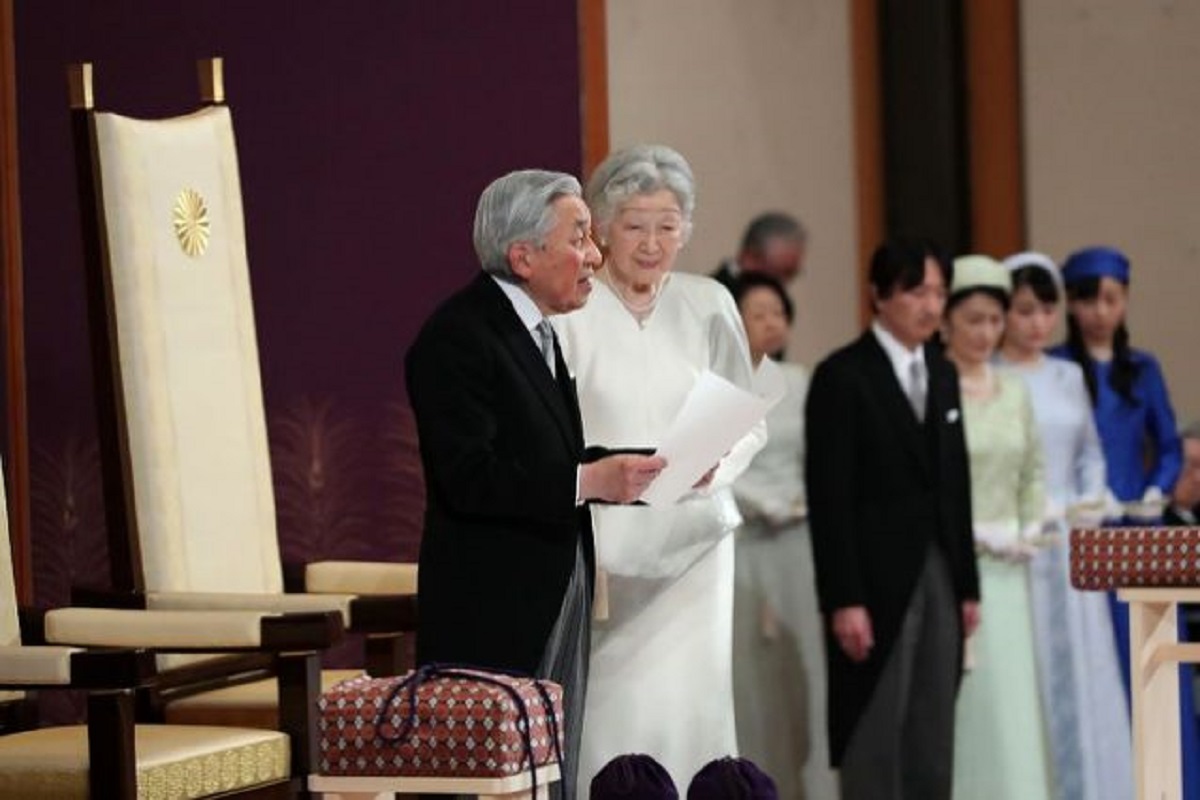Heightened alert issued as heavy rain hits Japan’s Okinawa
Japan's weather agency on Sunday urged Okinawa residents to be on high alert for mudslides and other disasters as torrential rains are drenching the country's southernmost prefecture.
Changing the 1947 imperial household law which stipulates that no female member of the family can become monarch, however, will not be easy.

(Image: Twitter/@teddyeugene)
Japan has over the past 75 years emerged as what many consider the model post-World War II nation-state with institutions not compromised beyond the usual wear-and-tear, excellent delivery systems for goods and services to its citizens, widespread prosperity, and all this without losing the essence of its civilisational ethos.
There has been just one structural niggle ~ its male-only succession rule for the Chrysanthemum Throne ~ which prevents it from being considered an ideal for a genderequitable world. As Japan grapples with the sensitive issue of royal succession amid a preponderance of women in the royal family, a panel of experts has begun discussions on addressing the shortage of heirs to the imperial throne.
This comes against the backdrop of recent opinion polls which show that four in five Japanese are now comfortable with the idea of women reigning as empresses. Defusing a potential succession crisis has taken on greater urgency due to a scarcity of males in the world’s oldest monarchy and the abdication, for health reasons, of Emperor Akihito. Emperor Naruhito, who succeeded his father two years ago, has only one child, 19-year-old Princess Aiko.
Advertisement
If she marries a non-royal, she would have to leave the imperial family and become an ordinary citizen. Aiko could not become empress (and her son would not become emperor) without a change in the law. That effectively leaves only an heir and a spare, as it were: Naruhito’s brother, Crown Prince Fumihito, 55, and his 14-year-old nephew, Prince Hisahito.
Technically, Prince Hitachi ~ Naruhito’s 85-year-old uncle ~ could also become emperor but that is a highly unlikely scenario. Changing the 1947 imperial household law which stipulates that no female member of the family can become monarch, however, will not be easy.
While the government-appointed expert panel has promised to discuss a range of options to ensure a stable future for the imperial family, there is pessimism among Japan-watchers on whether they will recommend rocking the boat in a country where the people may have no problem with an empress but the arch-conservatives in the establishment are certainly resistant to change.
Prime Minister Yoshihide Suga has said the expert panel is dealing with an issue that “goes to the very foundation of this nation” but he is loath to confront conservatives in his party who insist on maintaining the patrilineal, male-only succession. The betting is that at best the panel could recommend opening up the throne to males born to women who may be permitted to remain in the household even after marrying “commoners”.
But that would in a sense be the worst possible outcome of the deliberations, even more so than a no-change recommendation, because it would give an official imprimatur to reducing women members of the royal family to the status of medieval consorts.
Advertisement